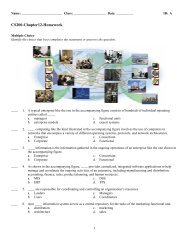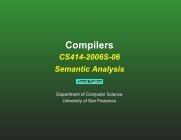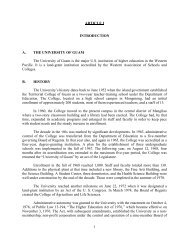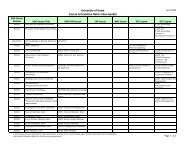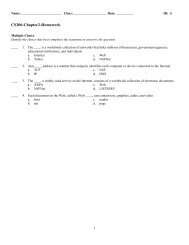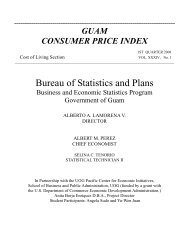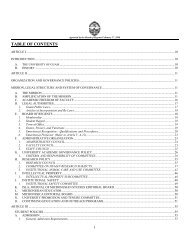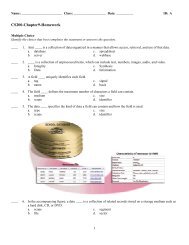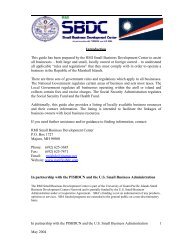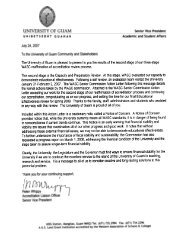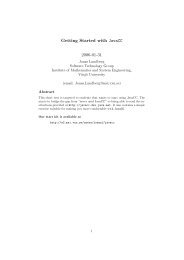Modern compiler design [PDF]
Modern compiler design [PDF]
Modern compiler design [PDF]
Create successful ePaper yourself
Turn your PDF publications into a flip-book with our unique Google optimized e-Paper software.
%{<br />
#include <br />
#include "errors.h" /* Definition of global variable current_line_number, */<br />
/* whose value is set by the lexer */<br />
void yyerror(char *s) {<br />
fprintf(stderr,"line %d, %s \n",current_line_number, s);<br />
}<br />
%}<br />
%token PLUS MINUS TIMES DIVIDE IDENTIFIER<br />
%%<br />
exp : exp PLUS term<br />
| exp MINUS term<br />
| term<br />
term : term TIMES IDENTIFIER<br />
| term DIVIDE IDENTIFIER<br />
| IDENTIFIER<br />
Figure 5.2: A yacc .grm file that deals with errors in a more elegant fashion<br />
5.1.3 Tokens With Values<br />
So far, we have ignored the values of tokens. Many tokens – such as PLUS, MINUS, and IF, do not need<br />
values, while other tokens – such as INTEGER LITERAL and IDENTIFIER, do need values. Our lexical<br />
analyzer actually gave values to all tokens – each token was tagged with the line number on which that token<br />
appeared. While we won’t be using the values of the tokens just yet, we do need to tell yacc which tokens<br />
have values, and what those values are. First, we have to let yacc know what the possible token values are.<br />
We do this with a %union declaration in the yacc definitions segment of the file. For instance, a<br />
%union {<br />
int integer_value;<br />
char *string_value;<br />
}<br />
declaration in the yacc definitions segment of the file tells yacc that some of the tokens will have int<br />
values, and some will have char * values. We now need to tell yacc which of the tokens can have what<br />
values. A simple change to the token declarations does this for us. Consider the .grm file in Figure 5.3. The<br />
token ID has the value char *, the token INTEGER LITERAL has the value int, and all other tokens have<br />
no values.<br />
Figure 5.4 shows a yacc file with that handles tokens with more complicated values, like those in the<br />
programming project.<br />
5.1.4 When Yacc Has Conflicts<br />
Not all grammars are LR(1).Occasionally, when building the LR parse table, yacc will find duplicate entries.<br />
There are two kinds of duplicate entries – shift-reduce conflicts and reduce-reduce conflicts. We will look at<br />
each in turn<br />
Shift-Reduce Conflicts<br />
Shift-reduce conflicts arise when yacc can’t determine if a token should be shifted, or if a reduce should be<br />
done instead. The canonical example of this problem is the dangling else. Consider the following two rules<br />
23


![Modern compiler design [PDF]](https://img.yumpu.com/37285279/24/500x640/modern-compiler-design-pdf.jpg)
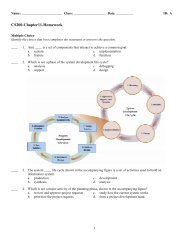

![Residence Hall Application Form [PDF]](https://img.yumpu.com/46340085/1/190x245/residence-hall-application-form-pdf.jpg?quality=85)
